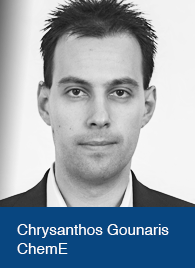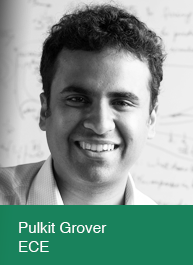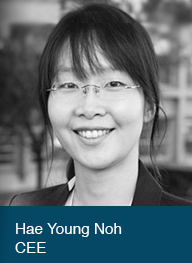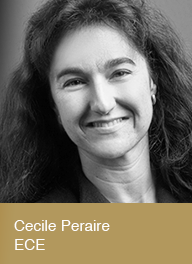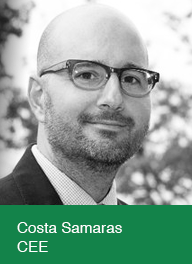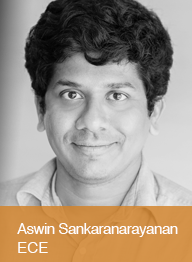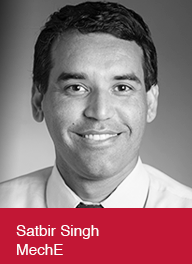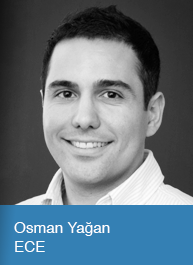The 2018 Dean’s Early Career Fellows
Eight young CMU faculty receive awards for their outstanding contributions to the university.
To commemorate their distinguished work in their fields, eight faculty members will receive the 2018 College of Engineering Dean’s Early Career Fellowship. This year’s fellows are Chrysanthos Gounaris (ChemE), Pulkit Grover (ECE), Hae Young Noh (CEE), Cécile Péraire (ECE), Costa Samaras (CEE), Aswin Sankaranarayanan (ECE), Satbir Singh (MechE), and Osman Yağan (ECE). The fellowship awards these young faculty members with funding to further their outstanding work.
Each untenured faculty member received nominations to this fellowship from their department heads. The Review Committee then selected the current awardees. A ceremony to celebrate and congratulate the faculty will occur later in the year.
Gounaris, assistant professor of chemical engineering, researches the mathematics of decision-making and develops computer algorithms for the optimization of complex and uncertain systems. These algorithms help industrial companies develop new products, design new plants, improve existing production and supply chain operations, and reduce overall energy consumption.
Grover, assistant professor in electrical and computer engineering, is an information theorist developing “coded computing” techniques for reliable computing using unreliable elements. He also develops novel techniques for sensing the brain noninvasively at high resolution. His lab works closely with computer engineers, neuroscientists, and clinicians to bring these results to practice. His awards include the National Science Foundation’s Faculty Early Career Development award, Google’s Faculty Research award, and the Institute of Electrical and Electronics Engineers’ Leonard Abraham award.
Noh, assistant professor in civil and environmental engineering, has research interests in enabling smart structures and improving their users’ quality of life by reducing structural maintenance and operational costs. Her concept of “structures as sensors” utilizes a structure itself as a sensing medium to indirectly infer multiple types of information about the structure, its users, and its surroundings.
Péraire, assistant teaching professor in software engineering, co-created the ECE Software Engineering Master program offered at CMU’s Silicon Valley campus. The College of Engineering recently awarded her the Dowd Fellowship Award for her contribution to the program. Her research focuses on software engineering education and software engineering methods, including software development sustainability.
Samaras, assistant professor in civil and environmental engineering, led an effort to incorporate climate resilience into engineering education and research. He directs the Center for Engineering and Resilience for Climate Adaptation, and co-directs the Power Sector Carbon Index research initiative. His research spans energy, climate change, autonomous vehicles, and defense analysis.
Sankaranarayanan, assistant professor in electrical and computer engineering, runs the Image Science Lab. His research explores imaging and vision. In his research, he designs image sensors, signal and image processing techniques, and high-level visual inference. He received the National Science Foundation’s Faculty Early Career Development award and the Excellence in Teaching Award by the Eta Kappa Nu (Sigma chapter) society in 2017.
Singh, associate teaching professor in mechanical engineering, specializes in simulating turbulent reacting flows in energy and environment applications. By using computational analysis in classroom and research settings, he helps students connect textbook-based learning with engineering applications. He leads efforts to evaluate and redesign mechanical engineering’s MS program.
Yağan, assistant research professor in electrical and computer engineering, works on modeling, analysis, design, and optimization of networked systems. His research assesses the dynamical processes in social and information networks and the robustness of cyber-physical systems, random graphs, wireless communications, and cyber-security. His work receives support from the National Science Foundation and Army Research Office.

